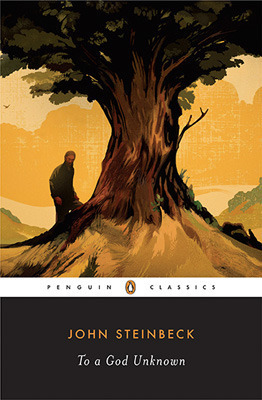Away in the dark north there was a faint flicker of aurora borealis, rarely seen so far south. The cold stony moon rose high and followed him. The mountains seemed edged with phosphorus, and a pale cold light like a glow-worm’s light seemed to shine through the skin of the land. The night had a quality of memory.
Joseph turned his back on the moon and rode away from it, into the west. The land was unsubstantial under the misty, strained light; the dry trees seemed shapes of thicker mist. He left the town and took the river road, and his contact with the town dropped behind him. He smelled the peppery dust that arose under the horse’s hoofs, but he couldn’t see it. Away in the dark north there was a faint flicker of aurora borealis, rarely seen so far south. The cold stony moon rose high and followed him. The mountains seemed edged with phosphorus, and a pale cold light like a glow-worm’s light seemed to shine through the skin of the land. The night had a quality of memory. Joseph remembered how his father had given him the blessing. Now he thought of it, he wished he had given the same blessing to his namesake. And he remembered that there had been a time when the land was drenched with his father’s spirit so that every rock and bush was close and dear. He remembered how damp earth felt and smelled, and how the grass roots wove a fabric just under the surface. The horse plodded steadily on, head down, resting some of his head’s weight on the bridle. Joseph’s mind went wearily among the days of the past, and every event was colored like the night. He was aloof from the land now. He thought, “Some change is beginning. It will not be long before some new thing is on the way.” And as he thought it, the wind began to blow. He heard it coming out of the west, heard it whisking a long time before it struck him, a sharp steady wind, carrying the refuse of dead trees and bushes along the ground. It was acrid with dust. The tiny rocks it carried stung Joseph’s eyes. As he rode, the wind increased and long veils of dust swept down the moonlit hills. Ahead, a coyote barked a staccato question, and another answered from the other side of the road. Then the two voices drew together into a high shrieking giggle that rode down the wind. A third sharp question, from a third direction, and all three giggled. Joseph shivered a little. “They’re hungry,” he thought, “there’s so little carrion left to eat.” Then he heard a calf moan in the high brush beside the road, and he turned his horse and spurred it up and broke through the brittle bushes. In a moment he came to a little clearing in the brush. A dead cow lay on its side and a skinny calf butted frantically to find a teat. The coyotes laughed again, and went away to wait. Joseph dismounted and walked to the dead cow. Its hip was a mountain peak, and its ribs were like the long water-scars on the hillsides. It had died, finally, when bits of dry brush would not support it any more. The calf tried to get away, but it was too weak with hunger. It stumbled and fell heavily and floundered on the ground, trying to get up again. Joseph untied his riata and roped the skinny legs together. Then he lifted the calf in front of the saddle and mounted behind it. “Now come for your dinner,” he called to the coyotes. “Eat the cow. Prettysoon there will be no more to eat.” He glanced over his shoulder at the bone-white moon, sailing and hovering in the blown dust. “In a little while,” he said, “It will fly down and eat the world.” As he rode on, his hand explored the lean calf, his fingers followed the sharp ribs and felt the bony legs. The calf tried to rest its head against the horse’s shoulder, and its head bobbed weakly with the movement. At last they topped the rise and Joseph saw the houses of the ranch, bleached and huddled. The blades of the windmill shone faintly in the moonlight. It was a view half obscured, for the white dust filled the air, and the wind drove fiercely down the valley. Joseph turned up the hill to avoid the houses, and as he went up toward the black grove, the moon sank over the western hills and the land was blotted out of sight. The wind howled down from the slopes and cried in the dry branches of the trees. The horse lowered its head against the wind. Joseph could make out the pine grove darkly as he approached it, for a streak of dawn was coming over the hills. He could hear the tossing branches and the swish of the needles combing the wind, and the moan of limbs rubbing together. The black branches tossed against the dawn. The horse walked wearily in among the trees and the wind stayed outside. It seemed quiet in the grey place; more so because of the noise around it. Joseph climbed down and lifted the calf to the ground. And he unsaddled the horse and put a double measure of rolled barley in the feed-box. At last he turned reluctantly to the rock.


